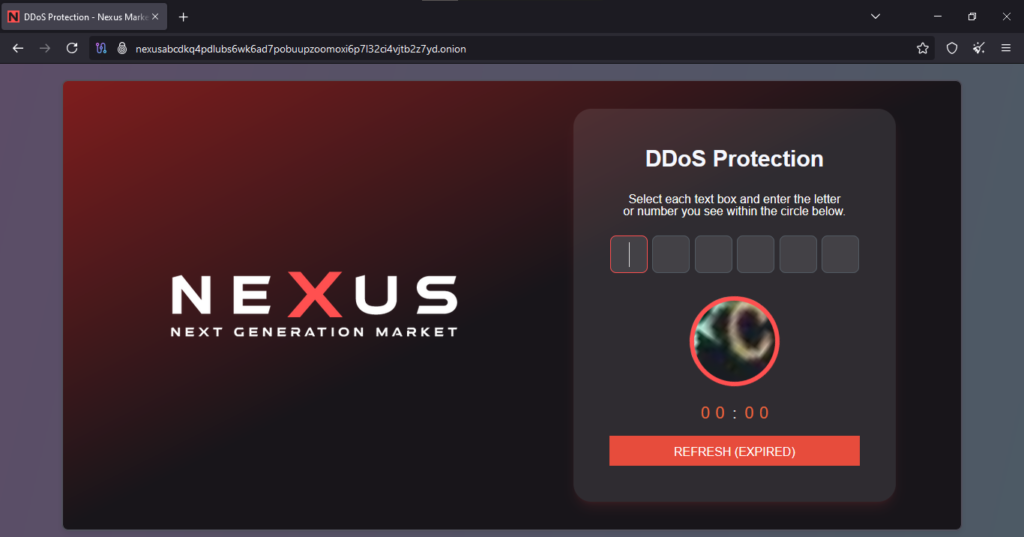Table of Contents
ToggleNEXUS Market – TOR Scam Report (213)
Onion Link: http://nexusabcdkq4pdlubs6wk6ad7pobuupzoomoxi6p7l32ci4vjtb2z7yd.onion
Scam Report Date: 2025/02/23
Client Scam Report Breakdown
Original Report Summary:
The client describes a recurring scam experience on the NEXUS marketplace, highlighting what they perceive as systematic favoritism toward vendors by site administrators. Initially, they were new and inexperienced but became suspicious after being scammed twice. The client alleges that the marketplace moderators initially appear supportive but ultimately use site policies to justify siding with vendors. In their specific case, they placed a large order worth $2,000, and after making an escrow payment, the vendor attempted to coerce them into a dead drop scam—a method where the buyer is expected to pay upfront and retrieve goods from an undisclosed location. The client raised concerns with the site admin, Alexia, but was told to wait for the dispute process. Eventually, the vendor, BULKHOUSE, allegedly sent only 1 gram instead of the promised 100 grams. Despite providing proof of attempted fraud, the admin sided with the vendor, citing their transaction history and experience on the platform. The client was also prevented from leaving feedback, allegedly to prevent “retaliation,” which they argue is an excuse to protect the vendor’s reputation and continue the scam undetected.
Defining Key Terminology and Terms
Several key terms and concepts need clarification to understand the nature of the scam. Escrow payment refers to a system where funds are held by a third party until both the buyer and seller confirm that the transaction is complete. In theory, this protects buyers, but in this case, the admins allegedly awarded the funds to the vendor despite evidence of fraud. Dead drop scam is a technique in which scammers convince buyers to pay upfront and then leave the product in an anonymous location for pickup—this is risky because there is no way to verify the transaction’s legitimacy. Vendor seniority suggests that experienced sellers receive preferential treatment in disputes, even when there is evidence of wrongdoing. Policy favoritism refers to marketplace moderators using ambiguous or selectively enforced policies to favor vendors over buyers, ensuring that scam operations can continue. Finally, feedback suppression occurs when a platform prevents scammed buyers from leaving public reviews, thus protecting a vendor’s fraudulent reputation and allowing future scams to go unnoticed.
Scam Analysis and Conclusion
This report suggests that the NEXUS marketplace engages in systematic fraud protection, where moderators knowingly shield dishonest vendors by manipulating dispute outcomes. The pattern described—initially offering support, delaying resolution, and ultimately favoring the vendor—aligns with marketplace-assisted scams, where the site benefits from maintaining high-volume fraudulent transactions. The feedback suppression policy ensures that negative experiences do not reach the broader buyer community, making it easier for repeat scams to occur. If true, this would indicate collusion between marketplace administrators and fraudulent vendors, an especially concerning issue given the high-value transactions involved. Buyers on this platform should exercise extreme caution, as even an escrow system cannot be trusted when the dispute process is rigged in favor of vendors. To counteract these scams, affected users should document all interactions, warn potential buyers outside the marketplace, and report the platform to scam-tracking databases. If evidence of collusion grows, it could also lead to increased scrutiny and shutdown efforts against NEXUS as a fraudulent operation.






